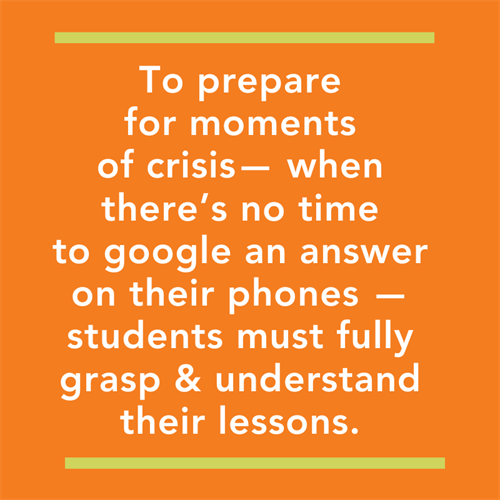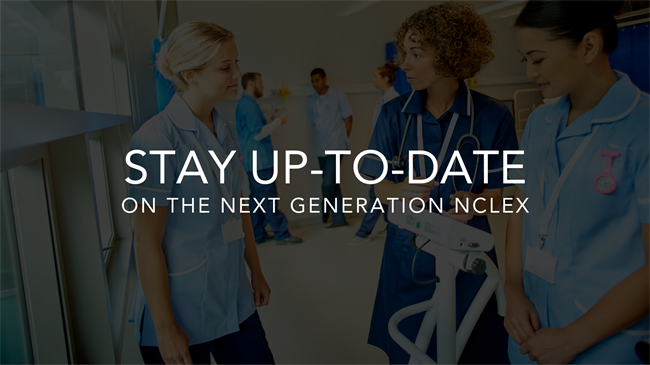How to explain the need for clinical judgment to students
Why Google isn't always so ‘awesome’ & why we need the Next Generation NCLEX
Today, you’ve likely read the research: New nurses rely on clinical judgment for nearly every task.
But this fact wasn’t common knowledge until a few years ago. That’s when the National Council of State Boards of Nursing (NCSBN) did an observational practice analysis. (The organization had heard scores of employer complaints that new graduates simply weren’t ready for real-world nursing.)
Stay up-to-date about the Next Generation NCLEX

This information was especially worrisome when coupled with data showing new nurses were regularly making errors, 60% of which were directly related to clinical judgment. And while about half the errors led to remediation or disciplinary action, no one knows how many might have led to patient harm.
The NCSBN knew change was needed — and, with public health at risk, there was no time to wait.
TIME FOR THE NEXT GENERATION NCLEX
Thus was born the creation of a new NCLEX, referred to as the Next Generation NCLEX. With its scheduled launch in April 2023, nurse educators need to double-down now on enhancing their lessons with more emphasis on clinical judgment.
An essential part of this task is helping students understand what clinical judgment is, why it’s important, and why they can’t assume Google will answer their questions in a crisis.
DEFINING CLINICAL JUDGMENT
Officially, the NCSBN defines clinical judgment as “the observed outcome of critical thinking and decision-making.” Further, it’s an iterative decision-making process that uses nursing knowledge to:
- Observe and assess presenting situations
- Identify a prioritized client concern
- Generate the best possible evidence-based solutions to deliver safe client care.
For new students, this explanation is likely too complex. What’s easier to explain is how the knowledge they learn in nursing school will gradually build throughout their education. Each class will add another layer of knowledge to what they’ve previously acquired. When they are in simulations or real-life clinical experiences, they’ll see how to apply this information. They’ll practice hands-on skills, and they’ll practice making on-the-spot decisions. Eventually, they’ll be able to walk into a client’s room and inherently know when something has changed — and how to immediately take action.
HOW NURSING SCHOOL DIFFERS FROM PREVIOUS EDUCATION EXPERIENCES
But even before instilling this understanding, take time to explain the difference between nursing school and their previous educational experience. Acknowledge that, in the past, they may have been able to cram for tests, get a passing grade, and move on to the next class. But, in nursing school? Those tactics won’t work. Someday, they will have clients’ lives in their hands. To prepare for those moments — when there’s no time to google an answer on their phone — they must fully grasp and understand their lessons. They must continuously keep the knowledge “in their heads.” Because the next class — and the next and the next — will build on what they’ve already learned.
The sooner you can help your students understand this concept? The sooner they can begin pursuing a successful nursing career.

